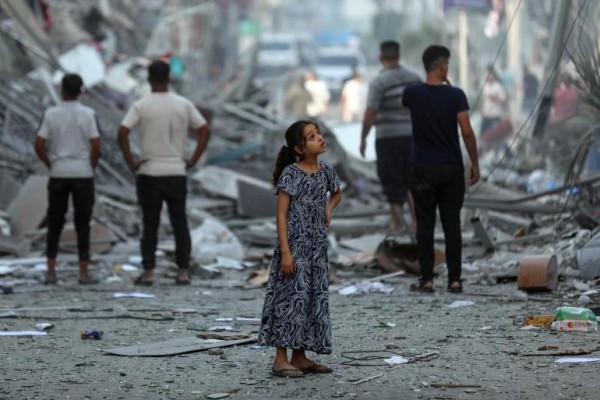
Isaiah is somehow the prophet of Advent. His texts (which, despite having been written twenty-eight centuries ago, can move us as if they had been composed yesterday) are especially present in the Eucharists of this time of preparation for Christmas. It is quite logical: as we prepare to celebrate the birth of the Prince of Peace in Bethlehem, we read the poet of Israel who most ardently dreamed about peace. Some of his most immortal and well-known pages are, in fact, beautiful songs against war and in favor of non-violence: «They shall beat their swords into plowshares, and their spears into pruninghooks: nation shall not lift up sword against nation, neither shall they learn war any more» (Is 2:4)1. Or this passage, justly famous, which does not cease to amaze us in spite of being so well known: «The wolf will live with the lamb, the leopard will lie down with the goat, the calf and the lion and the yearling together; and a little child will lead them. The cow will feed with the bear, their young will lie down together, and the lion will eat straw like the ox. The infant will play near the cobra’s den, and the young child will put its hand into the viper’s nest. They will neither harm nor destroy on all my holy mountain, for the earth will be filled with the knowledge of the Lord as the waters cover the sea.» (Is 11:6-9).
In this Advent of 2023, Isaiah's dream of peace seems very distant, even more distant and unattainable than a few years ago. The world, according to analysts, is becoming a more violent place, if we compare it with the scenario we had just at the beginning of the century. Apart from dozens of minor struggles (which, even though they are minor, cause countless victims), there are large-scale armed conflicts in Burkina Faso, in Somalia, in Sudan, in Yemen, in Myanmar, in Nigeria and in Syria... apart , obviously, of the war in Ukraine, in the heart of Europe (which will be two years old in February 2024, with hundreds of thousands of soldiers and more than 10,000 civilians killed to date) and the war between Israel and Hamas, which already accumulates nearly 20,000 fatalities. The Gaza Strip, paradoxically, is located less than sixty miles from Bethlehem, the birthplace of the Prince of Peace.
What to do, given this scenario? Should we forget forever about Isaiah and his dreams? Shall we surrender to the conviction that humanity will never be able to eradicate war? Must we understand that, as long as there are immense economic interests related to the arms industry, plows will never be forged from swords? It is a tempting position. The facts seem to support it.
The alternative is, of course, to argue that Isaiah's pacifist dream is a better path. To affirm that, in the face of the current return to war that we are experiencing, Isaiah, as well as the Gospel of Jesus (who will affirm that those who work for peace are blessed) are more necessary than ever. The alternative is to work so that these wars, today, are the last expressions of an ancient humanity, which one day will disappear, to give way to a new humanity, attached to peace, faithful to the visions of Isaiah and Jesus.
Each of us, with our daily attitudes —opting for non-violent ways to resolve the small conflicts in which we find ourselves, betting on dialogue and promoting justice— can work so that this new humanity is not an illusion. In Advent, in this Advent, it would not be a bad idea to redouble our commitment to peace. In the end, let us not doubt it, Isaiah will be right.
(1) This phrase, as is well known, is carved on a wall at the United Nations headquarters in New York.









